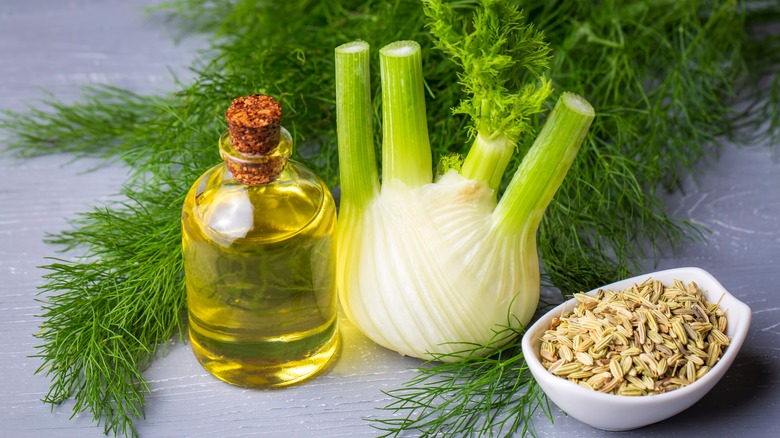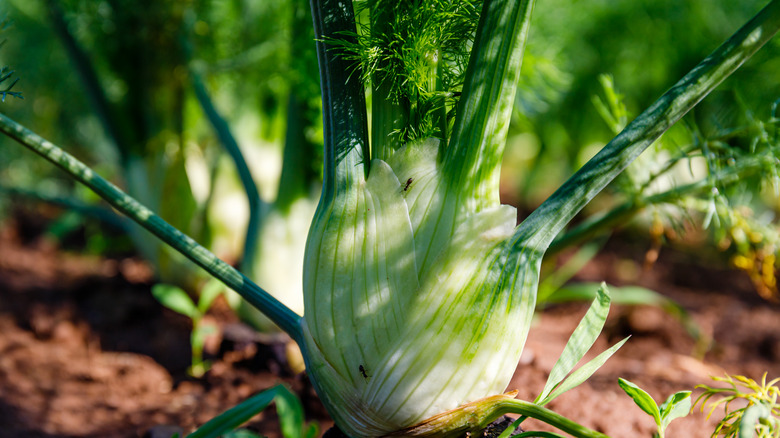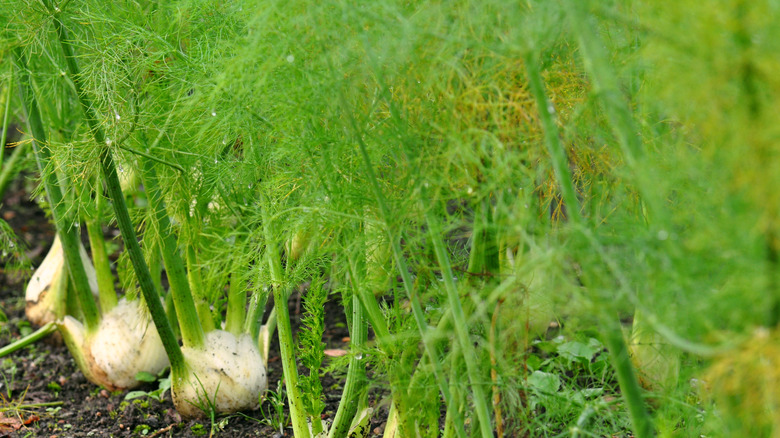Here Is The Best Time Of Year To Plant Fennel
With its many uses in and out of the kitchen, fennel is a versatile plant. One of the most common ways to use fennel is as a fresh herb or dried spice. It's also used to treat an upset stomach by chewing on it or brewing it into a medicinal tea. There are two varieties of this plant that have a licorice-like flavor. Annual bulbs like anise fennel can be grown in most climates and are ready to be harvested in spring and fall, according to Mother Earth News. Perennial plants like bronze fennel are planted for their pungently flavored seeds and will regrow every spring.
A fresh herb garden will upgrade the culinary skills of any novice chef. You can grow fennel from seed in your backyard garden or indoors in a container kept on the kitchen counter. The latter is a great way to guarantee it'll be accessible while you're cooking. If you do go with a potted fennel plant, use a large container because the bulb will need a lot of space to grow.
Plant fennel from early spring to late summer
The best time of year to start your fennel depends on when you want to harvest it. Once you know when you want to start using the plant, you will need to subtract days to know when to sow your seeds. Growing for Market Magazine recommends calculating 90 to 110 days ahead of your projected last harvest date. Depending on your climate, you will also need to check when the last frost in spring is likely to pass as well as when the first frost in fall will begin. If it's still too cold to start sowing, you can start your fennel indoors, but this will make the plants more likely to bolt after transplanting them outside.
A general rule is that you can start planting fennel from early spring to late summer. To sow your seeds, you will need well-draining soil rich in nutrients. At first, germinate the seeds in the dark and make sure the temperature does not drop below 60 degrees Fahrenheit. When the seedlings start to sprout, move them to a sunny spot.
How to care for fennel
Before harvesting the bulb, tender herbs, or seeds from your fennel plant, you must care for it properly. You certainly don't want your plant to die before you can reap the benefits of growing it from seed. Soil is critical. For your plant to succeed, you need a mix that is dense in nutrients. GrowVeg recommends using well-draining soil combined with compost. If your yard has dirt filled with clay that will hold onto moisture, use raised beds filled with garden soil instead. The location you choose is essential because fennel needs direct sun exposure in order to grow to its full potential.
Fertilizer is a step you cannot skip. There are multiple options to feed your plant. One common way is by applying a liquid fertilizer, suggests Mother Earth News. You can also use grass clippings and mulch to help retain moisture. To ensure you grow a large bulb of fennel, cover it with mulch once it's the size of an egg. When the bulb is 3 inches wide, it's time to pull it from the soil. Harvesting the tender herb portion of the plant can be done as you need it, and it will continue to regrow.



